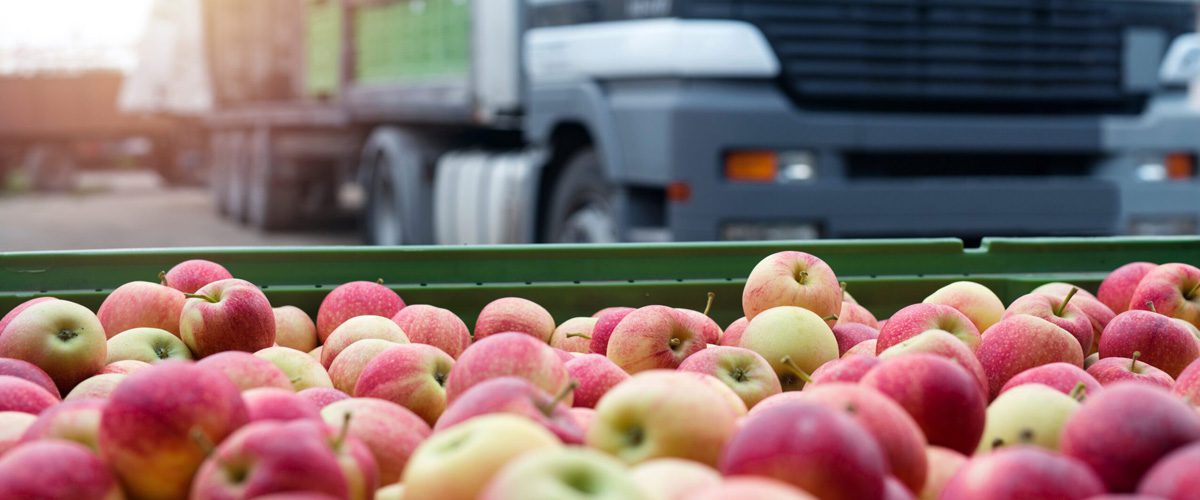The perishables sector comprises all time-sensitive commodities characterized by limited shelf lives and needs special temperature-controlled transportation and storage arrangements.
This includes edible items like meat, fruits, vegetables, milk, juices, and other foodstuff, as well as non-edible items such as flowers, medicines, and other pharmaceutical products.
The geographical market, size, and growth rates for each perishable commodity vary considerably, which is why the segment exhibits incredible variance, particularly at a granular level.
The size and growth rates of a few important perishable commodities are mentioned below:
· The global pharmaceutical market was valued at USD 1.42 trillion in 2021, with North America accounting for 49.1% of the overall revenue.
· In the case of flowers, which are primarily transported by air, over 80,000 flowers are transported daily.
· International trade in major tropical fruits recorded an 8% increase in 2021 over 2020.
The growth of the perishables segment has given impetus to the growth of cold chain logistics, which essentially refers to supply chains for products requiring temperature control.
It has also boosted demand for ancillary logistical services, such as reefer shipping, cold storage, and innovative products designed for fast and efficient transport of perishables.
Perishables logistics market and international trade
The expansion in the international trade of perishable products has broadened not just the geographical scope of the industry but also the logistical infrastructure and requirements necessary to cater to the growing volumes.
The operational complexities are significant, given that each perishable product has a different life span and transportation requirements in terms of optimal temperature, transit times, and packaging and handling requirements.
This translates into higher demand for cold storage at the landside and reefer containers for maritime transport.
In 2021, the volume of reefer cargo transported by sea was 137.4 million tonnes, an increase of 2% over 2020. After a lackluster 2022, seaborne reefer trade is expected to increase by 4% in 2024 and 2025.
The global cold chain logistics market was valued at USD 242.39 billion in 2021 and is expected to grow at a CAGR of 15% until 2028.
Supply chain and logistical challenges faced by the Perishables sector
Given this segment’s nature, the typical supply chain challenges faced by most other industries are amplified in the case of perishable commodities. Besides, the segment also has a set of challenges unique to the industry.
The most pressing challenges are explained below:
1. Limited shelf life
The limited shelf life of commodities poses a unique logistical challenge in the perishables sector. As products get closer to their shelf life, their utility might deteriorate, leading to a subsequent erosion in value, which could potentially cause significant losses to the parties involved in the transaction. Smoothly functioning supply chains and well-co-ordinated logistics activities are therefore essential to ensure that the product’s delivery time, as a proportion of its shelf life, is minimized.
2. High-value cargo and risk of potential claims
Perishable commodities are generally of high value, wherefore the total value of cargo stuffed in a reefer container could easily be up to a few hundred thousand dollars. Combined with the time-sensitive nature of the cargo, this means that in the event of damage to cargo, potential claims for damages would be correspondingly high, coupled with the additional risk of loss of reputation and costs of litigation.
Therefore, It is of utmost importance to ensure that the transport planning is done carefully and executed diligently thereafter.
3. Real-time visibility of cargo status and condition
To preserve the value and utility of perishable cargo, the temperature must be maintained at the stipulated levels. Any fluctuations in the temperature can cause damage to the cargo, lowering its value. Also, any delays in delivering the cargo can reduce the shelf life left for the consumer to use the product.
Therefore, exporters and importers need real-time visibility of the status and condition of the cargo at all transit points to avoid or minimize damage and delays.
4. Supply chain disruptions
The widespread supply chain disruptions witnessed since 2020 have compounded the risks arising from the limited shelf life of products.
With vessel capacity and equipment being tied up in congestion at ports, shippers faced shortages of reefer containers, which prolonged delivery times and affected supply chain reliability.
In 2021, at the peak of the disruptions, 20% of US agricultural exports were lost due to carrier issues, while ocean carriers initially declined 40% of export booking requests, and shipping lines canceled 31% of confirmed export bookings.
Shippers were thus faced with the prospect of their perishable goods awaiting allocation of empty containers and thereafter lying at the port for a vessel connection. Even after being loaded on a vessel, congestion at the destination port could cause further delays.
During 2021, only 35% of US agricultural exports reached overseas customers on time.
5. Compliance and regulations
Exporters and importers of perishable products have to contend with a litany of regulations, complying with which involves extensive documentation and adhering to stringent processes.
This requires considerable effort and costs and entails severe consequences in the event of even an inadvertent mistake.
Penalties range from monetary fines to rejection of the entire consignment.
What KlearNow can offer the Perishables sector
1. Simplifying customs clearance and documentation
KlearNow’s AI-powered data ingestion platform reduces the complexity that has traditionally been inherent to the customs clearance and documentation process. The platform can collate information across multiple sources and disparate formats, thus ensuring that customs documentary requirements are accurate and filed on time.
2. Real-time visibility:
In partnership with project44, KlearNow’s platform enables real-time visibility on the status and condition of the cargo. Exporters and importers are, therefore, cognisant of the status of their consignment and well-positioned to take appropriate remedial measures in case of delays or mishaps.
This, in turn, helps minimize potential losses from cargo damage or delayed deliveries.
3. Automating the shipping process and alerts on various milestones
KlearNow’s platform automates the logistics process, reducing the amount of manual effort required. This eliminates the probability of human mistakes and helps avoid risks arising from inadvertent errors.
The platform also provides pre-alerts on various milestones in the shipping process, helping optimize the transport planning process.
4. Selecting a drayage partner in advance
Importers can also use the platform to select a drayage partner in advance, resulting in smooth handovers and seamless cargo delivery at every stage in the supply chain.
Conclusion
Given the operational complexities and comprehensive documentary and procedural requirements, exporters and importers of perishable commodities are gradually incorporating technological solutions to streamline logistical aspects and customs clearance.
While the market is replete with several Logitech solutions targeting various pain points, KlearNow has emerged as a leading player, with its sophisticated platform easing each aspect of the end-to-end transport process.
KlearNow’s AI-powered data ingestion platform helps exporters and importers of perishable commodities manage their supply chains much more effectively.
For more information on how KlearNow can help your business, please click here.

